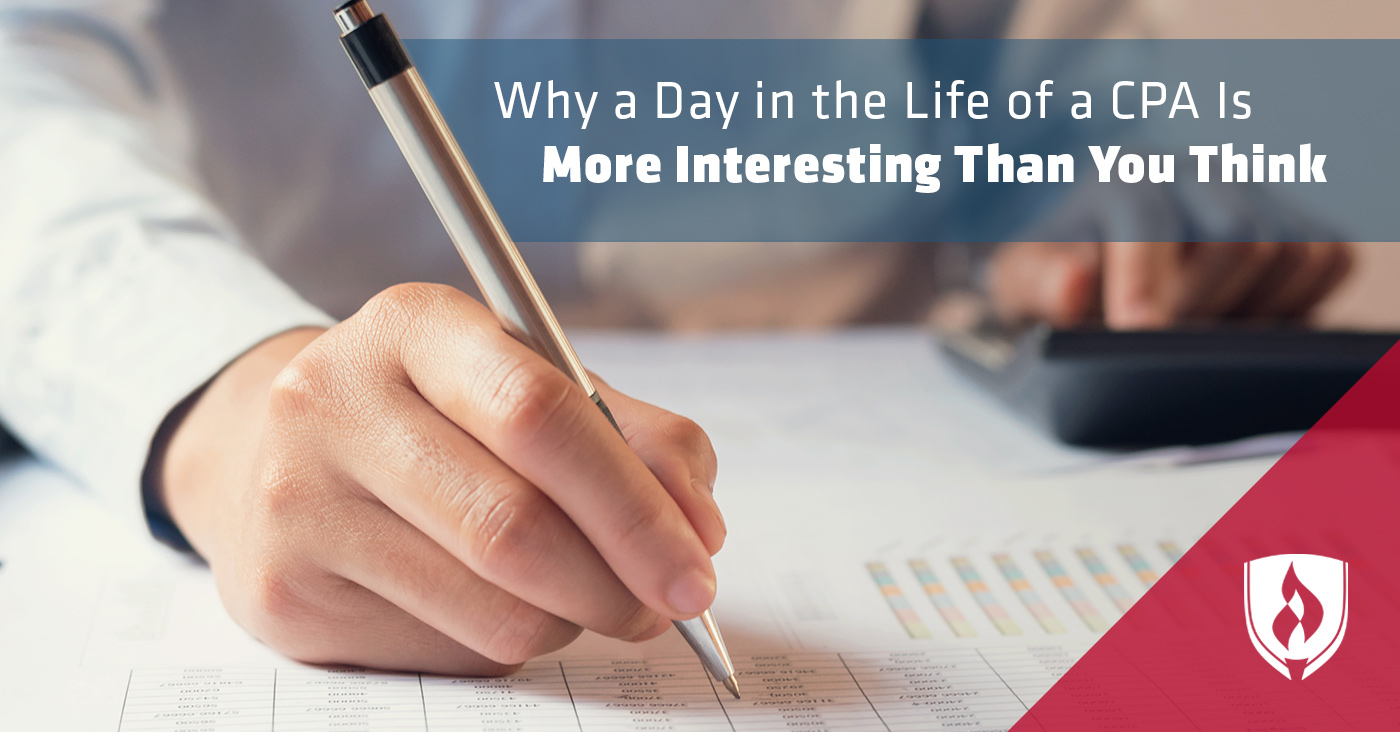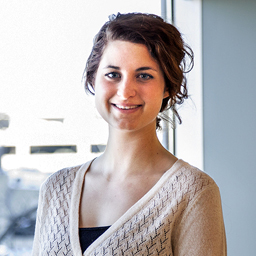
You’ve always been intrigued by the world of accounting and wondered if becoming a certified public accountant (CPA) might provide the career satisfaction you’ve been seeking. Still, when you think of public accounting, you can’t help but wonder if it’s all excel spreadsheets and endless numbers. You’re not alone.
“Most people think of accountants as number crunchers just sitting at their computers looking at spreadsheets all day,” says Tom Gisler, CPA at Clifton Larson Allen.
Gisler admits that “number crunching” is part of the job, but he says his primary responsibility is to his clients. Effectively serving them involves a whole spectrum of responsibilities.
So before making any blind assumptions about the life of an accountant, take some time to become well-informed about the career. We enlisted some seasoned experts to give you a sneak peek at the life of a CPA. Their insight suggests it’s not as boring as you may have thought.
Wondering the difference of accounting vs. computer science? Read more here.
What are the daily duties of a CPA?
Client interaction
“We are in constant contact [with our clients],” Gisler says. He explains that he frequently goes out for lunch with them, talks with them on the phone and meets with new clients nearly every week. This may come as a surprise to someone who assumed CPAs spend their days behind a computer screen.
"Obtaining my CPA license was the best career move I ever made."
This portion of the job calls for strong interpersonal skills, according to Collin Lynn, CPA associate with Clifton Larson Allen. He adds that CPAs must be able to clearly communicate with clients, explaining financial strategies, clarifying tax regulations or discussing nonconforming data received during an audit.
Continued professional education (CPE)
In order to maintain your CPA status, you will need to attend CPE courses to stay up to date on the newest regulations and laws. This way you will always be on the cutting edge of what is happening in the industry and never have to worry about falling behind in knowledge or practice.
Inventory counts
Like many people, Gisler assumed his life as a CPA would be largely spent at a desk. The responsibility of inventory counts came as a pleasant surprise, allowing him to be out and about more than he ever imagined. This is the process of physically counting the inventory items in order to maintain proper records.
“Having the inventory counts regularly gets you out of the office and on your feet moving around and meeting new people,” says Gisler. “It's a nice change to days in the office.”
What is the work environment of a CPA like?
Work environment is an important component of any career. Just as you want to enjoy the work you’re doing, you also want to enjoy the atmosphere in which you’re doing the work. CPAs often work alongside highly skilled professionals on the cusp of industry technology and insights. If this excites you, read on to learn more about the elements of a CPA’s work environment.
Tech-savvy
“Gone are the days of paper,” Lynn says. You can expect to complete a lot of your work electronically with tools that will enable you to be accurate and efficient. Lynn says technology has enhanced the audit process, making it easier to uncover abnormalities that may pose a fraud risk.
Ever-evolving
"The work environment of a CPA is constantly changing."
“The work environment for a CPA is constantly changing,” Lynn says. He says new rules and regulations are passed frequently and it’s his job to learn and abide by them. As aspiring CPA must be a quick-learner who can easily adapt to the changing landscape of the industry.
Professional
“CPA’s are often times held to a higher standard in relation to industry knowledge, hourly commitments, ethical requirements and continued CPE credits," says Lynn. This accountability shouldn’t come as a surprise, considering you’ll be working with money and sensitive financial information.
Pros & cons of CPA certification
There are good and not-so-good aspects to every career. While the positive features have you interested in becoming a CPA, it’s helpful to be aware of the negative ones as well. Our accounting experts reveal some pros and cons of life as a CPA.
Advantages
One of the more prominent advantages to becoming a CPA is that they tend to earn more money than standard accountants. We used real-time job analysis software from Burning-Glass.com to compare the advertised salaries for CPAs versus other accountants.* At the time of the analysis, the average annual salary for all accountants was $66,510 compared to $78,601 annual earnings for CPAs.
Another benefit of earning a CPA credential is that it increases your credibility in the field. The fact that you took the time and initiative to go above and beyond the minimum professional requirements demonstrates your dedication to others.
Becoming a CPA also opens doors for career advancement, according to Gisler. “Most companies will only let you climb the ladder so far in the financial department without having some sort of certification,” he says, adding that the CPA is the most applicable credential.
Disadvantages
The most obvious drawback of earning CPA certification is the time commitment. The CPA exam takes about 14 hours to complete and is comprised of more than 325 questions and task-based simulations. Needless to say, preparation is extremely time-consuming. Lynn recalls studying more than 100 hours for each of the four sections of the exam.
Gisler explains that it’s not all smooth sailing after obtaining your CPA certification—you also have to maintain it. As mentioned earlier, you’ll be required to participate in continuing professional education events, which isn’t always convenient. On the bright side, he says almost any job will pick up the tab for these events—which can include seminars in Hawaii, Florida or Vegas!
Lynn also admits that the life of a CPA can be stressful, which has the potential to result in high employee turnover. It’s a very demanding job and not for the faint of heart or non-committal.
Summing it all up
Both Gisler and Lynn agree that life as a CPA is more exciting than it seems. They also believe the advantages far outweigh the drawbacks.
“Obtaining my CPA license was the best career move I ever made,” Lynn says.
Does this sound like the career path you’ve been seeking? Learn how the Rasmussen Accounting program can help you acquire the knowledge and skills you need to succeed in this position.
*Burning-Glass.com (analysis of 286,008 accounting job postings, Apr. 8, 2014 – Apr. 7, 2015)




